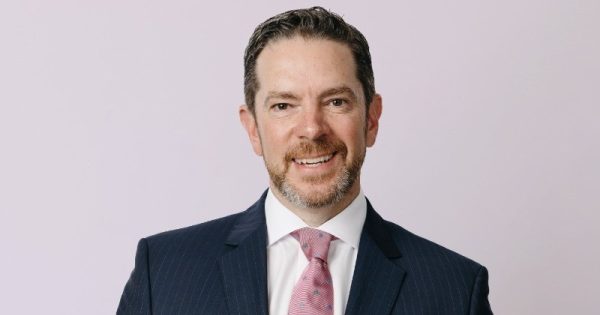Industry funds seek tough changes after Shield, First Guardian

Industry superannuation funds are openly questioning the so-called ‘trustee-for-hire’ model and urging the imposition of financial resource requirements as part of a tough Government response to the collapse of the Shield and First Guardian funds.
The Super Members Council (SMC) has come out in the wake of recent announcements by the Australian Securities and Investments Commission (ASIC) and the Assistant Treasurer, Daniel Mulino, to call for a range of reforms including the imposition of cooling off periods on super switching.
The SMC’s recommendations with respect to ‘trustee-for-hire’ models comes as Equity Trustees defends itself against ASIC charges over the fund collapses.
The SMC said in a statement it was “clear additional consumer safeguards are needed to protect Australians’ super savings – and SMC seeks to work with other system stakeholders in good faith to design stronger consumer safety protections.
“The First Guardian and Shield collapses have laid bare the scale of serious consumer risks when Australians are urged to switch their super out of the high-performing mainstream super system – where there are strong consumer protections and strong regulatory oversight – into higher-risk places,” it said.
“SMC supports ASIC Chair Joe Longo’s call for stronger consumer protections such as cooling off periods to give people the chance to “get a second opinion, have second thoughts.”
“Australia’s retirement savings system is among the strongest globally, but its integrity and public trust rely on robust consumer protections.”
“SMC calls on Government, ASIC and APRA to work with organisations across the system to close any gaps that risk consumer safety and confidence.
“In addition to backing reforms floated by the ASIC Chair, a package of broader ideas could include:
- Expand anti-hawking laws to tackle social media lead-generation, click-through ads and online funnels that replicate pressure-sales environments, which includes regulating seminar, telemarketing and referral-based tactics that target super switching and SMSF setups under the guise of “education” or “coaching”.
- Ensure consistently high standards and close any consumer protection gaps in governance accountability, executive accountability under the FAR regime, regulator supervision, and financial resource requirements across all super and investment platforms. Task this work to a joint ASIC-APRA-Treasury review, which should also reassess the trustee-for-hire model.
- Reintroduce ASIC’s 2010 “Investing Between the Flags” initiative and having official alerts when consumers are about to move outside system safeguards, prompting them to confirm they clearly understand the risks.
- Bring back an ASIC minimum recommended balance for SMSF establishment, on the MoneySmart website.
- Task ASIC to comprehensively review its conflicted remuneration guidance in light of practices highlighted by these two collapses.
- Use data-driven surveillance to monitor risk in high rates of super switching or SMSF establishment to identify consumer harm risks early and act sooner.
“We anticipate others will also have important ideas for reforms to strengthen consumer protections following the Shield and First Guardian collapses – and we welcome the opportunity to work together on them.
“The social licence of the whole system relies on strong trust in super and strong trust in good advice – and Australians rightly expect there to be strong uniform consumer protections across the entire system,” said SMC CEO Misha Schubert.
“The collapses of Shield and First Guardian show the current consumer protections are not uniform enough – and we all have a responsibility to work together to ensure they are.”
“Many Australians are vulnerable to tactics that encourage them to switch their super into options that are more expensive, risky or not in their best interests. We need a system that universally prevents consumer harm.”











A S#+T show from some criminal Advisers, MIS, Responsible Entities, Auditors, etc and Industry Super Funds take more control.
Like the Banks / RC, the Industry Super Funds & Unions took masses more market share & power.
Clearly ISFs look to do the same again here. Rightly so to some degree with these debacles.
Yet Industry Super Funds remain largely unregulated, hidden costs & expenses, more and more in-house asset managers, more and more unlisted assets they value as they choose.
And uneducated, unqualified backpacker FUM sales teams not far away.
When will ISFs be looked at ?
Vertical Integration on a huge conflicted scale.
ISFs with millions of members and near trillion of FUM are largely unregulated? Surely you don’t actually believe that? Mind boggling the narrative people tell themselves, and others!
too funny, my compliance auditor said I am not allowed to say industry funds have hidden costs and expenses cause apparently these all can be found. Unlisted assets at over 30% – No idea how to find these. I wish I could though!
Isn’t this…. Those in glass houses shouldn’t throw stones?
How many ASIC fines have SMC trustee members have been awarded in recent times?
Oh and who pays for these fines?
Very opportunistic by the SMC. Hypocrites.
The super wars clearly are not over.
Time for a Royal Commission into politicans, unions and super fund trustees. I think this would be very interesting.
Yuck…
It was not that long ago that Australian Super wrote off $1.1 Billion of members money on a venture capital start up! No suggestion to include looking into their controls and due diligence.
Evidently a massive loss like that is just capitalism.
Not to mention the $300 odd million that was blown up recently in Seattle office towers investment.
Nothing to see here.
I’m still bemused by how one Trustee spent nearly $400,000 of members money on a celebration dinner and that this evidently is an ok thing to do with members retirement savings.
Australia really is bad when it comes to this stuff.
in todays news 18/11/25
AustralianSuper, HESTA and the Queensland government’s investment arm, QIC, have an indirect exposure to the prominent bankruptcy case due to substantial interests in one of its biggest backers – Generate Capital. One of Generate’s directors is QIC’s head of global infrastructure, Ross Israel.
Pine Gate has raised more than $US7 billion ($10.7 billion) since it was founded in 2016 and owes creditors including Brookfield and Carlyle around $US6 billion. The company blamed growing uncertainty for overseas investment in the United States and hostility toward green energy since the return of Donald Trump to the White House as reasons for its collapse, along with the revocation of tax credits for solar projects.